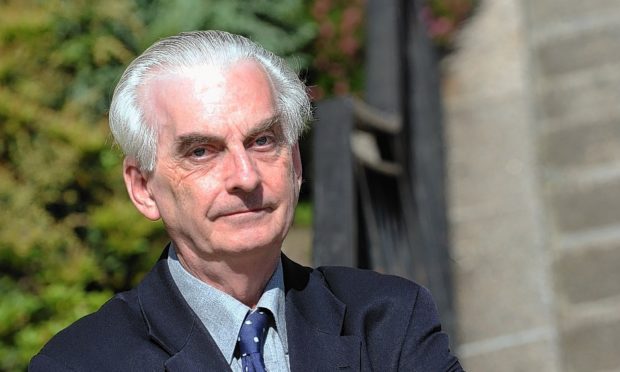Leading microbiologist Hugh Pennington has accused the SNP of engaging in its own “project fear” over the NHS.
The Nationalists claim only a Yes vote in next week’s referendum swill save the Scottish health service.
They claim any reduction in the budget south of the border would result in less money for Scotland via the Barnett Formula if the status quo was maintained.
Professor Pennington said there was “no evidence” that health budgets were being cut or that privatisation would have a negative impact in Scotland.
The emeritus professor of bacteriology at Aberdeen University said if services were privatised, they were still funded by taxpayers.
This year’s Treasury “Red Book” shows the English health budget going up, not down – £105.5billion for 2013-14 and £110.4billion for 2015-16.
Prof Pennington, head of the Better Together steering committee in Aberdeen, said the SNP was presiding over privatised services such as Serco running the facilities management at Forth Valley Royal Hospital and allowing health boards to contract out patient treatment.
He added that any plans to start charging patients in England would need parliamentary approval in accordance with the NHS Constitution.
“Privatisation does not mean that people will end up paying for services, just that the NHS is contracting out the work as they do in Grampian to reduce waiting lists,” he said.
“The SNP say they (Westminster) are going to introduce charging on the back of privatisation but I have not seen any proposals that will happen.
“If any MP down south said ‘we are going to start charging’ he would be out at the next election – it would be political dynamite to do that.”
Prof Pennington added: “It is a fear tactic to suggest that if you vote No it will be doom and disaster for the NHS.”
But Deputy First Minister Nicola Sturgeon said warnings from “dozens of senior health professionals” showed that Scotland was “not immune from this threat”.
